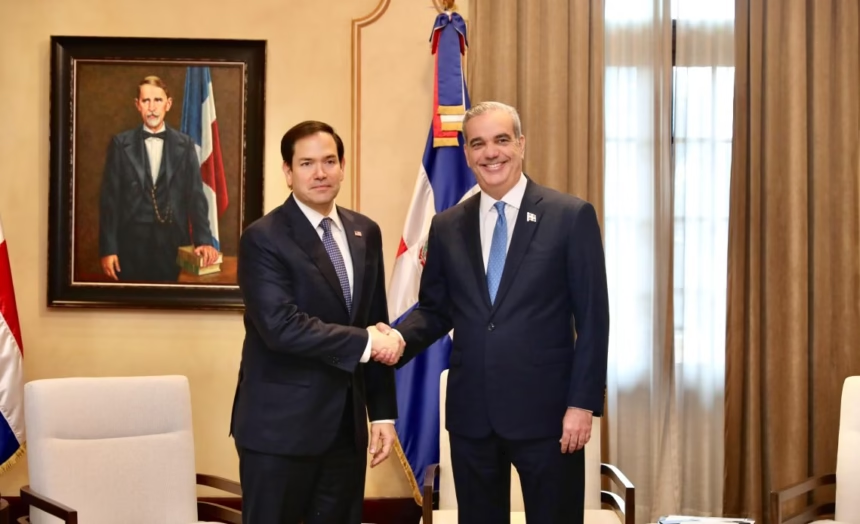U.S. Secretary of State Marco Rubio reiterated on February 6, 2025, the United States’ support for the Mission of Support for Security in Haiti (MSSM-Haiti) during his meeting with Dominican Republic President Luis Abinader.
In a joint press conference, largely dominated by the political and security situation in Haiti, Marco Rubio described the current situation in Haiti as a “tragedy” and urged Haitian elites to take active control of their country’s destiny in order to resolve the crisis afflicting the nation.
Marco Rubio emphasized the need to find sustainable solutions to stabilize Haiti, a country suffering from growing insecurity, dominated by armed gangs, and a socio-political environment that is unstable. According to him, while the primary responsibility for resolving the Haitian crisis rests with the Haitian people and their political leaders, international aid remains essential to support this process.
At the heart of his intervention, Marco Rubio stressed the importance of attracting foreign investments as part of the nearshoring strategy, which involves relocating certain businesses closer to the United States to take advantage of the geographical benefits of countries like Haiti.
According to the new Secretary of State, this strategy would allow Haiti to stimulate its economy by creating jobs for its population, particularly for its youth, who make up a significant portion of the Haitian population.
In this regard, Rubio advocated for the renewal of the HOPE/HELP Act, U.S. legislation that offers “trade benefits” to Haiti and the Dominican Republic, but also, and more importantly, to American businesses that benefit from inexpensive labor in both countries. He believes these measures would help strengthen Haiti’s economy while supporting regional stability.
During the joint press conference, Marco Rubio addressed the issue of the migration crisis and reassured the Dominican president by declaring that the Dominican Republic would not be forced to accept a migratory wave from Haiti, referencing the significant flow of Haitian migrants to its neighbor.
The Secretary of State also emphasized the need for more coordinated and effective international aid to stabilize Haiti. He mentioned Kenya’s commitment to lead a support mission in Haiti while criticizing the inaction of certain nations, particularly those with greater resources. According to Rubio, although the situation in Haiti demands international intervention, the United States remains convinced that the sustainable solution must be led by the Haitians themselves.
Marco Rubio reaffirmed that the United States would continue to provide support to Haiti in its fight against insecurity and poverty. However, he stressed that real change must come from within the country. “The solution for Haiti is in the hands of its people and its elites, but we will help because we cannot ignore the problems that exist,” he concluded.
The Dominican president, who had immediately addressed the political and security situation in Haiti, strongly criticized the international community, which, he said, has not made enough effort to facilitate a resolution to the crisis in Haiti.
Although the discussions between Marco Rubio and Luis Abinader were largely dominated by the situation in Haiti, the U.S. Secretary of State did not find it necessary to include Haiti among the countries he visited during his tour of the region. It is also unclear whether Haitian authorities were invited to meet with the U.S. Secretary of State during his visit to the Dominican Republic.







